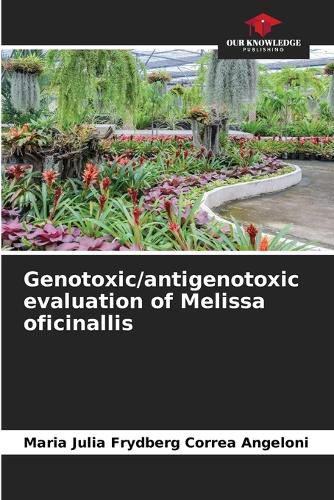Genotoxic/antigenotoxic evaluation of Melissa oficinallis
Maria Julia Frydberg Correa Angeloni

Genotoxic/antigenotoxic evaluation of Melissa oficinallis
Maria Julia Frydberg Correa Angeloni
Considering that diet has a major influence on the promotion and progression of cancer, and that mutations are key elements in neoplastic processes, there is growing interest in the study of compounds with antigenotoxic and antimutagenic properties from plant extracts. Melissa officinalis L., popularly known in Brazil as lemon balm or melissa, is traditionally used as an aqueous or alcoholic extract for the treatment of fevers, colds, indigestion associated with nervous tension, hyperthyroidism, depression, mild insomnia, epilepsy, headaches, toothaches, among others. However, there is no information on this plant in relation to protective or toxicogenic effects. Therefore, the aim of this study was to investigate the antimutagenicity/antigenotoxicity and mutagenicity/genotoxicity of the aqueous and ethanolic extracts of this plant.
This item is not currently in-stock. It can be ordered online and is expected to ship in approx 2 weeks
Our stock data is updated periodically, and availability may change throughout the day for in-demand items. Please call the relevant shop for the most current stock information. Prices are subject to change without notice.
Sign in or become a Readings Member to add this title to a wishlist.


